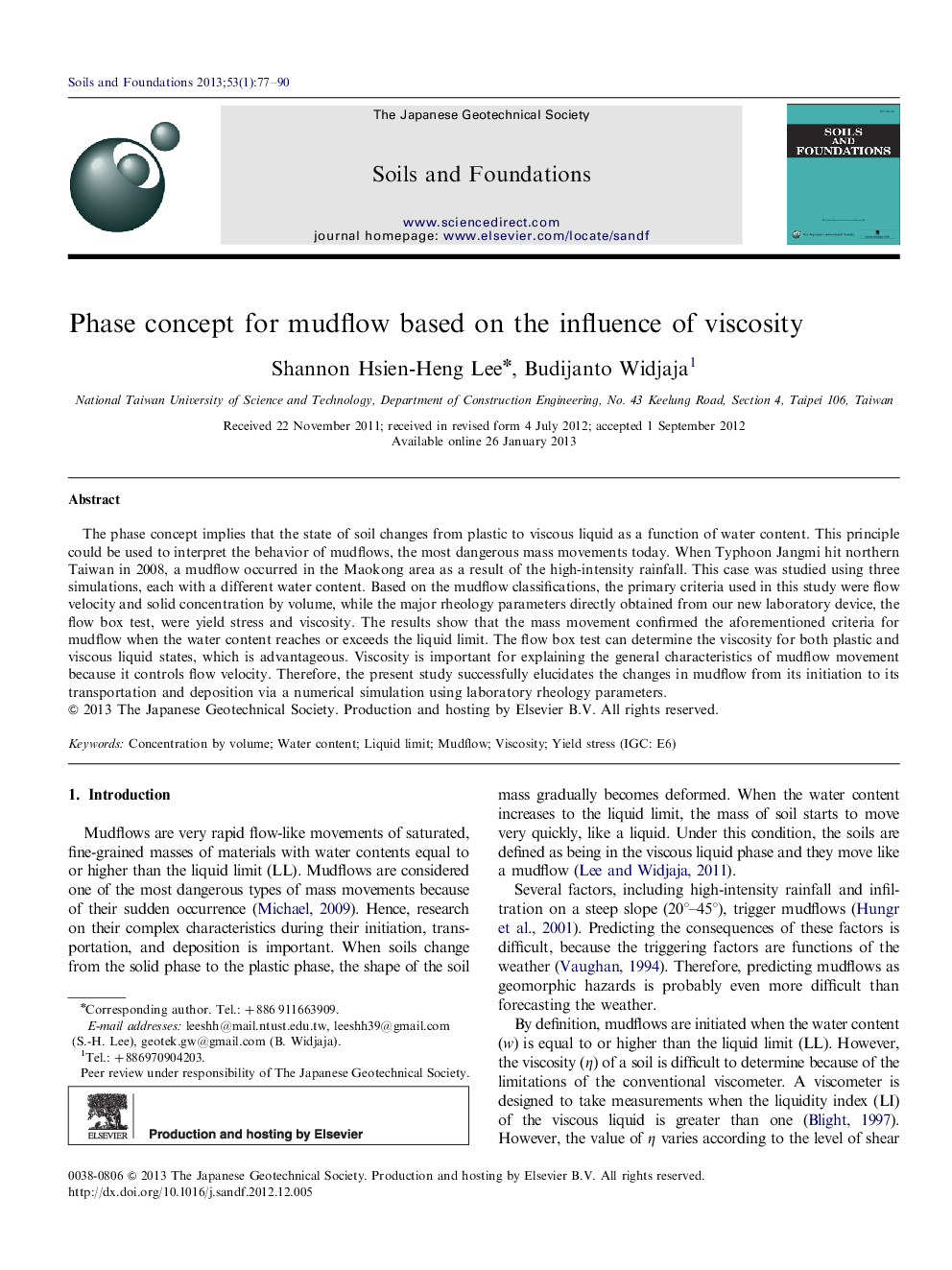| Article ID | Journal | Published Year | Pages | File Type |
|---|---|---|---|---|
| 307139 | Soils and Foundations | 2013 | 14 Pages |
The phase concept implies that the state of soil changes from plastic to viscous liquid as a function of water content. This principle could be used to interpret the behavior of mudflows, the most dangerous mass movements today. When Typhoon Jangmi hit northern Taiwan in 2008, a mudflow occurred in the Maokong area as a result of the high-intensity rainfall. This case was studied using three simulations, each with a different water content. Based on the mudflow classifications, the primary criteria used in this study were flow velocity and solid concentration by volume, while the major rheology parameters directly obtained from our new laboratory device, the flow box test, were yield stress and viscosity. The results show that the mass movement confirmed the aforementioned criteria for mudflow when the water content reaches or exceeds the liquid limit. The flow box test can determine the viscosity for both plastic and viscous liquid states, which is advantageous. Viscosity is important for explaining the general characteristics of mudflow movement because it controls flow velocity. Therefore, the present study successfully elucidates the changes in mudflow from its initiation to its transportation and deposition via a numerical simulation using laboratory rheology parameters.
